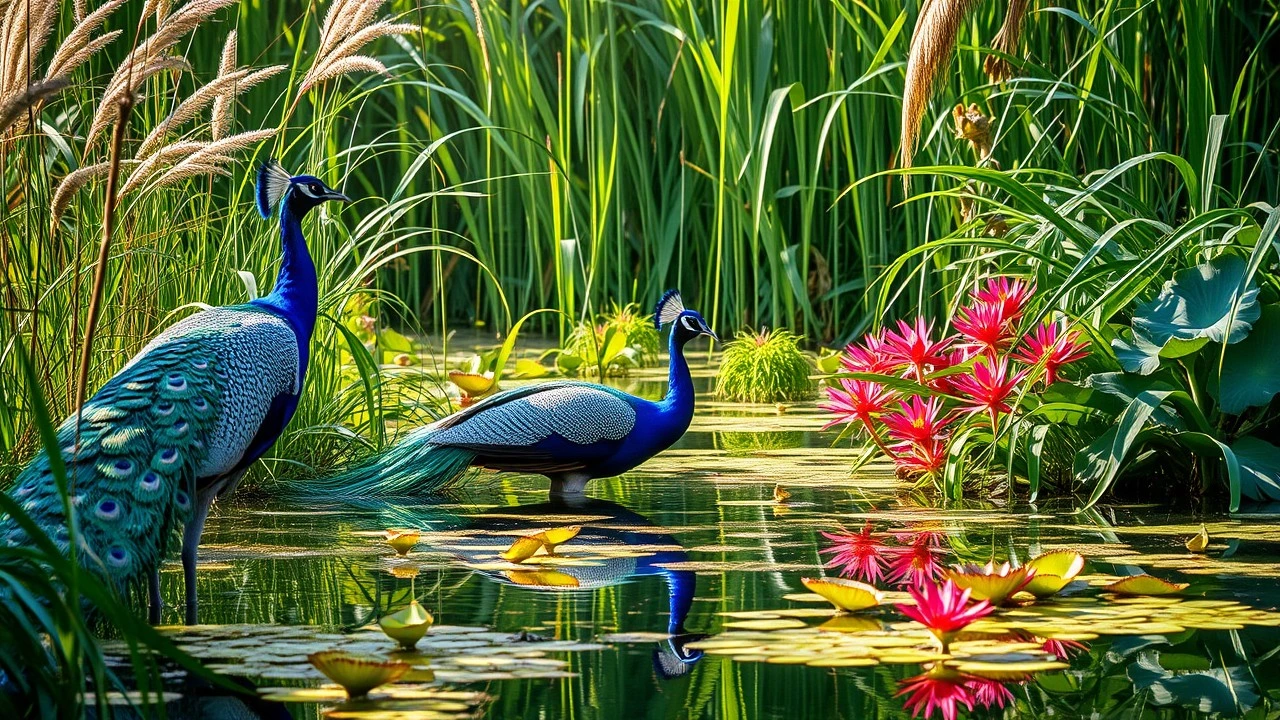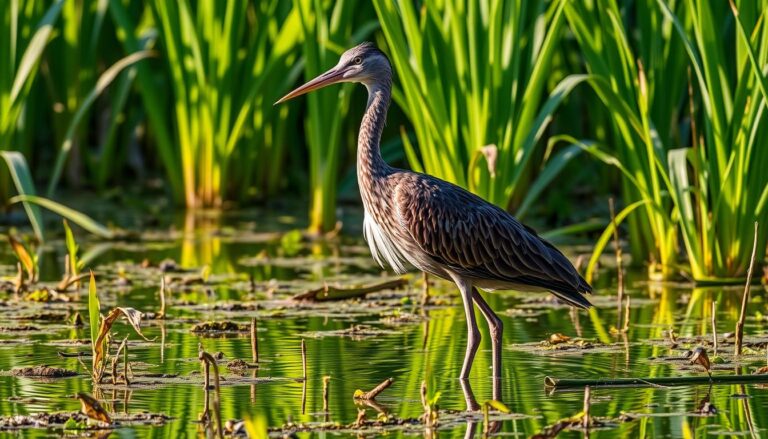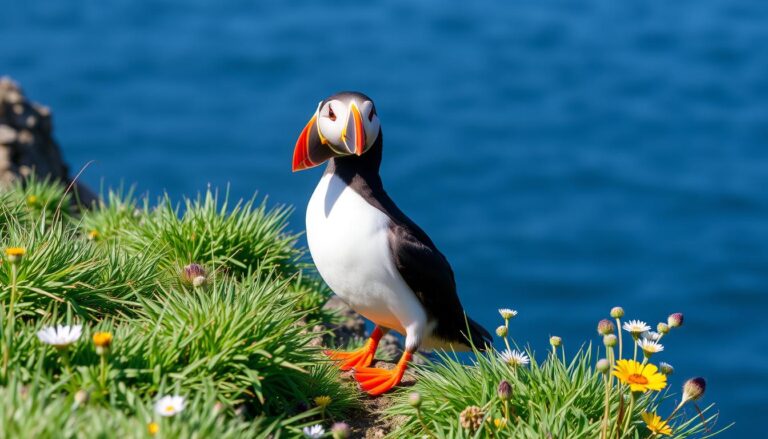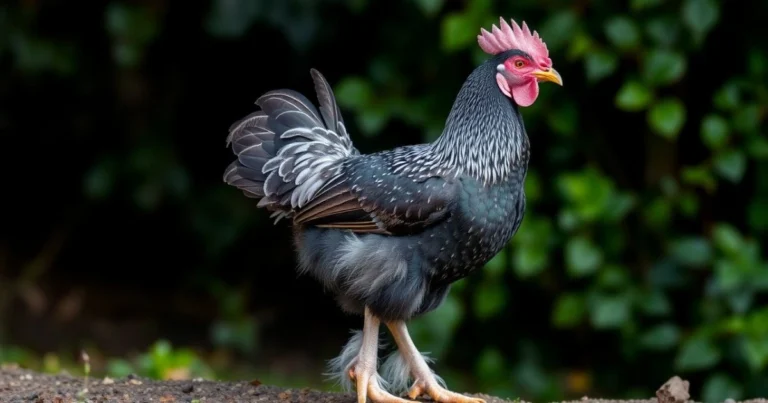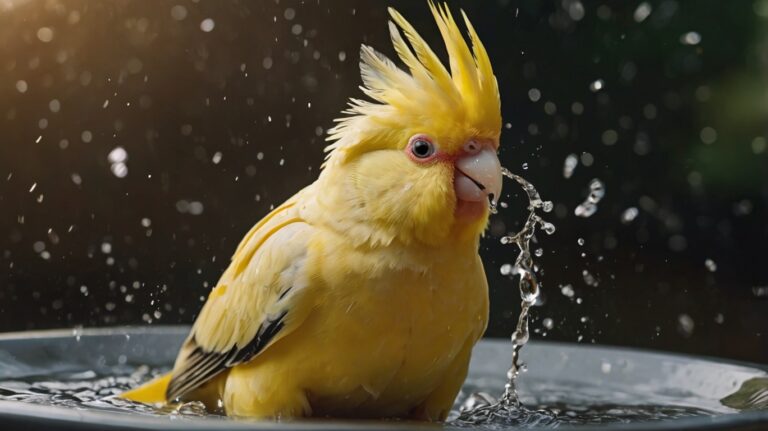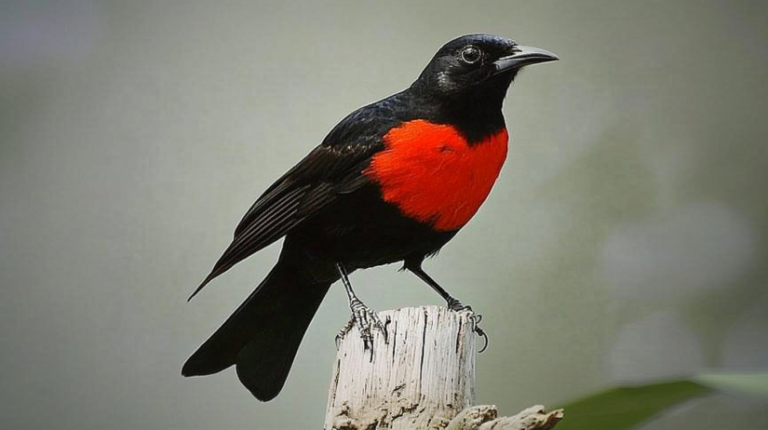The Majestic Peacock: A Symbol of Beauty and Grace
When you think of beauty in nature, certain images come to mind. A breathtaking sunset, a blooming garden, or a magnificent peacock spreading its colorful plumage. If you’ve ever seen a peacock, you know how its feathers can capture your heart and soul.
This enchanting bird, known for its vibrant colors and graceful movements, is a symbol of beauty and elegance. Across various cultures, peacocks represent these qualities. In this article, we’ll explore their biology, cultural significance, and how to appreciate and care for them.
Here’s a table providing an overview of the peacock bird:
| Attribute | Details |
|---|---|
| Official Name | Pavo cristatus |
| Common Name | Peacock |
| Pet Height | 3.5 to 4 feet (males) |
| Pet Weight | 8 to 13 pounds (males) |
| Lifespan | 15 to 20 years |
| Smartness Level | High |
| Engagement in Play | Moderate |
| Human-Friendly | Yes, but requires space |
| Animal-Friendly | Can be territorial |
| Favorite Food | Grains, insects, seeds |
Table of Contents
Understanding the Peacock
The Biological Classification of Peacocks
Peacocks belong to the family Phasianidae. This family includes many bird species. The most well-known are the Indian Peacock, the Green Peacock, and the White Peacock.
Every species is special in its traits and living spaces. This creates a distinction between them.
Let’s compare these beautiful species briefly:
| Species | Size | Habitat | Plumage Color |
|---|---|---|---|
| Indian Peacock | Up to 6 ft | Open forests, grasslands | Vibrant blue and green |
| Green Peacock | Up to 4 ft | Tropical forests | Iridescent green |
| White Peacock | Up to 4 ft | Gardens, parks | White with light shades |
The Indian Peacock can grow up to six feet long. Its feathers shimmer in blue and green, with eye-like patterns. These patterns are key in courtship displays.
The Green Peacock is slightly smaller but has a shimmering green color. The White Peacock is rare and has pure white feathers.
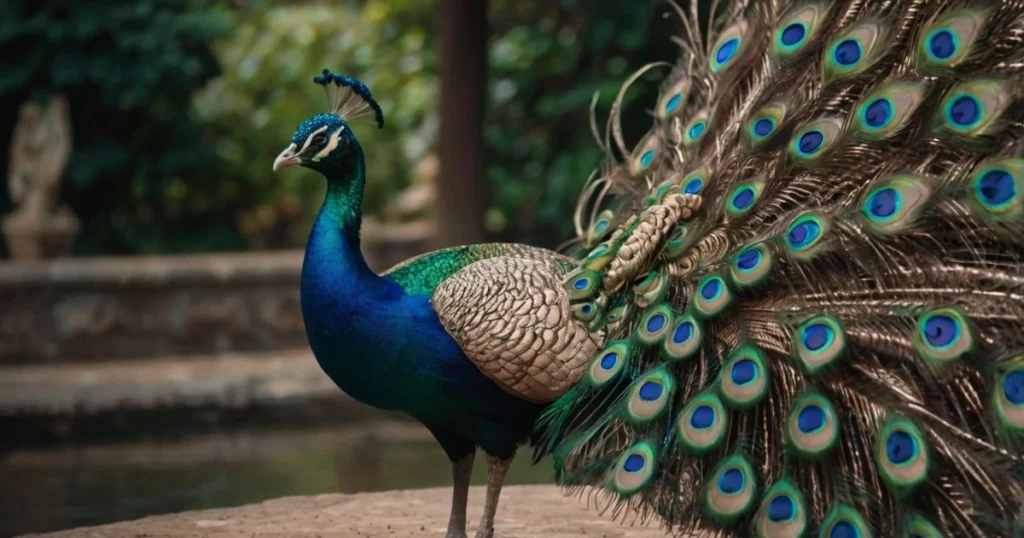
Physical Characteristics
Peacocks are known for their stunning feathers. These feathers reflect light, showing off colors in a mesmerizing way. When they spread their tails, it’s a sight to behold.
Their tails have long feathers with eye-like patterns. These patterns help attract mates. During courtship, males show off their feathers and make soft calls.
Cultural Significance of Peacocks
Symbolism Across Cultures
Peacocks have been important in many cultures. In India, they are the national bird, linked to wisdom and knowledge. They’re often viewed as guardians and symbols of wealth.
In Greek mythology, peacocks are connected to the goddess Hera. Her feathers symbolize loyalty and vigilance. In Asian cultures, peacocks represent pride, beauty, and wealth.
Peacocks in Art and Literature
Peacocks have inspired many artists and writers. Painters like Gustav Klimt and John James Audubon featured them in their work. Authors like Edgar Allan Poe and Lewis Carroll used peacocks to explore beauty and time.
Peacocks are also found in sculptures, tapestries, and pottery. These works show their importance and the admiration they receive. Exploring these artworks helps us understand their impact on creativity.
The Role of Peacocks in Nature
Habitat and Behavior
Peacocks live in forests, grasslands, and open fields. They are social birds, often in groups called “musters.” In these groups, they communicate and show off their feathers.
They eat seeds, fruits, insects, and small reptiles. Peacocks also help control insect populations, benefiting their ecosystems.
The Importance of Peacocks in Ecosystems
Peacocks play a key role in keeping nature balanced. They help spread seeds, which promotes plant growth and diversity. Their presence also shows a healthy environment, as they need specific conditions to thrive.
Knowing how important peacocks are in nature highlights the need to protect them. We must work to save their habitats and keep their populations strong.
Caring for Peacocks
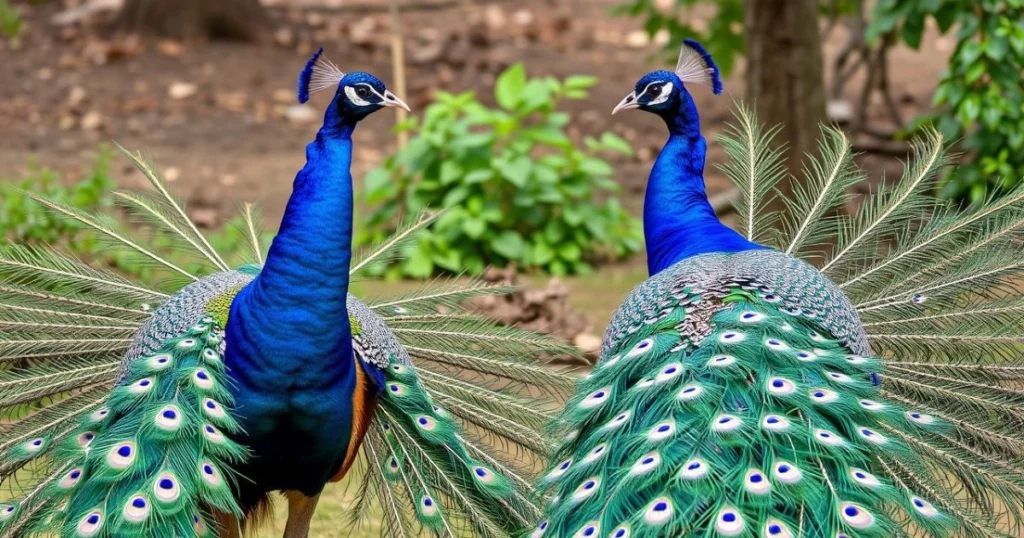
Domestic Peafowl: A Growing Trend
Raising peafowl as pets is becoming more popular. If you’re thinking about getting a peacock, there are important things to consider.
Reasons to Raise Peacocks:
- Aesthetic Appeal: Their beautiful feathers can make your garden or backyard look stunning.
- Pest Control: Peacocks eat insects, helping to control pests naturally.
- Companionship: They are social and can bond with their owners.
Essential Care Tips
Taking care of peacocks requires dedication and knowledge. Here are some key tips for their health:
- Space: Give them enough room to roam and show off their feathers.
- Shelter: Make sure they have a safe coop to protect them from predators at night.
- Diet: Feed them a balanced diet of commercial peafowl feed, grains, fruits, and vegetables.
- Social Interaction: Raising more than one peacock is best, as they do well in groups.
Common Health Issues
Peacocks can face health problems like any animal. Some common issues include:
- Respiratory Infections: Keep their environment fresh to avoid respiratory infections.
- Parasites: Regularly check for mites and ticks, and get vet advice for prevention.
- Nutritional Deficiencies: A well-balanced diet is key to avoiding health problems.
Periodic vet visits are vital for their overall health.
Frequently Asked Questions (FAQ)
What does the peacock represent in various cultures?
The peacock is seen as a symbol of elegance, charm, and fortune. In India, it represents wisdom and spirituality. In Greek mythology, it stands for loyalty and vigilance.
Are peacocks aggressive?
Peacocks can be aggressive, mainly during mating season. It’s important to watch their behavior and be cautious, mainly with males during breeding.
Can peacocks be kept as pets?
Yes, peacocks can be pets, but they need enough space, social interaction, and proper care to thrive.
What do peacocks eat?
Peacocks mainly eat seeds, fruits, insects, and small reptiles. A balanced diet, including commercial peafowl feed, is crucial for their health.
Are peacocks endangered?
While some peacock species are threatened, others, like the Indian Peacock, are widespread. It’s vital to protect their habitats and populations through conservation.
Conclusion
In conclusion, the majestic peacock is a timeless symbol of beauty and grace. It captivates hearts and minds across cultures. By understanding their importance, we can appreciate their role in nature and the stories they inspire. Whether you see a peacock in the wild or consider raising one as a pet, take time to admire their beauty and the elegance they bring to our world.

